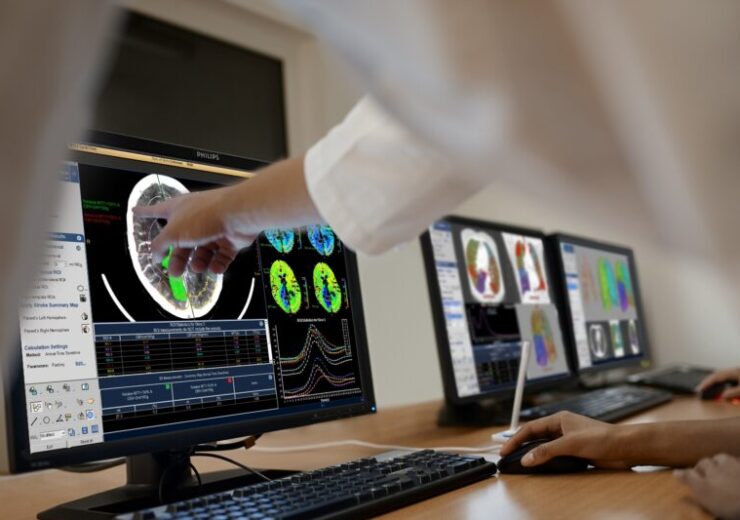The new integrated platform is intended to make imaging faster and enable the interpretation of datasets for diagnostic and operational efficiency for an early and definitive diagnosis

The Advanced Visualisation Workspace is designed to streamline radiology workflows and improve diagnostic confidence. (Credit: Koninklijke Philips N.V.)
Royal Philips has rolled out its next-generation artificial intelligence (AI)-based Advanced Visualization Workspace to streamline radiology workflows and improve diagnostic confidence.
According to the health technology firm, the latest vendor-neutral platform includes a suite of advanced visualisation solutions for multiple modalities across cardiology, oncology, neurology, and radiology. The new offering will be unveiled at the ongoing Radiological Society of North America (RSNA) annual meeting in Chicago.
The suite is customised to suit the requirements of any hospital network, including a single workstation to an enterprise solution.
The Advanced Visualization Workspace consists of over 70 clinical applications for clinical insights, created to assist workflow, diagnostic confidence, and automated processing for clinical domains throughout the care.
Philips said that the new applications include the MR cardiac suite to offer diagnostic support and ease of reporting with one overview for all types of imaging data.
Also, part of the Advanced Visualisation Workspace is CT ASPECT (Alberta Stroke Program Early CT Score), an AI-powered tool for indicating early brain infarction signs on non-contrast computed tomography (CT) exams for ischemic stroke patients.
The list of features also includes CT Liver Analysis, which offers analysis and quantification of liver segments and other defined regions of interest, the health technology firm added.
Philips diagnostic and pathway informatics general manager Reema Poddar said: “At this year’s RSNA, Philips will showcase how our informatics solutions use intelligence to provide patient-centric insights, integrate advanced visualization tools into the workflow and support clinical collaboration to speed up the detection of diseases by leveraging intelligence everywhere along the patient care journey.”
“We are uniquely positioned to apply new, optimised algorithms to massive data sets to provide prescriptive analytics to our customers, helping them improve both clinical and operational efficiencies within their organisations.”
Additionally, the firm has launched its next-generation compact portable ultrasound solution, dubbed Compact System 5000 Series, for premium image quality.
Designed for portability and versatility, the system has an optional battery to give it a 2.5-hour scanning time and a 20% faster power-up time, Philips said.
